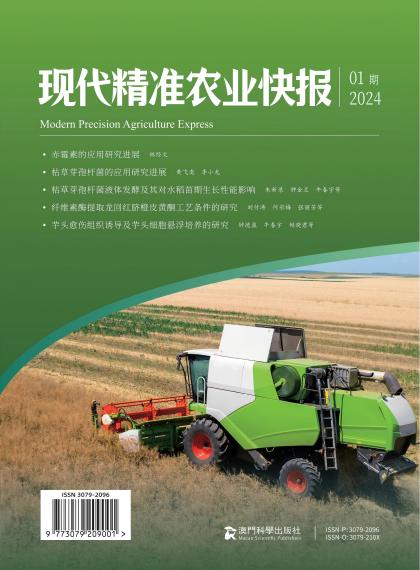摘 要:
生姜作为一种具有重要经济和药用价值的作物,其传统繁殖方式受限于种性退化和病毒侵染等问题,导致产量和品质下降。本文综述了生姜组织培养技术的发展历史、现状及其在育种改良中的应用。组织培养技术通过离体培养植物的根、茎、叶和花等组织器官,为作物育种提供了新途径,尤其在缩短优良种质苗木培育周期、加速良种无性化推广应用方面显示出显著优势。国内外研究进展表明,组织培养技术在生姜脱毒、复壮、快速繁殖种苗、培育高产优新品种以及离体种植保存等方面具有广泛的应用前景。本文还探讨了生姜组织培养技术的未来发展方向,包括降低生产成本、创制优异种质、优化植物组织培养过程、提高生姜产量和抗病能力等。随着分子生物学技术的应用和遗传改良研究的深入,生姜组织培养技术有望进一步推动生姜产业的可持续发展,并为全球生姜生产提供科技支撑。
关键词:生姜;组织培养;脱毒;快速繁殖
Abstract:
As a crop of significant economic and medicinal value, ginger faces limitations in traditional propagation methods due to issues such as genetic degeneration and virus infection, leading to reduced yield and quality. This paper reviews the developmental history, current status, and applications of ginger tissue culture technology in breeding improvement. Tissue culture technology, which involves the in vitro culture of plant tissues and organs (e.g., roots, stems, leaves, and flowers), provides a novel approach for crop breeding. It demonstrates notable advantages in shortening the cultivation cycle of elite germplasm seedlings and accelerating the asexual propagation of improved varieties. Advances in domestic and international research highlight the broad application prospects of tissue culture technology in ginger virus elimination, rejuvenation, rapid seedling propagation, development of high-yield and superior varieties, and in vitro germplasm preservation. Furthermore, this paper explores future directions for ginger tissue culture technology, including cost reduction, creation of elite germplasm, optimization of in vitro culture processes, and enhancement of yield and disease resistance. With the integration of molecular biology techniques and advances in genetic improvement, ginger tissue culture technology is expected to further promote the sustainable development of the ginger industry and provide scientific support for global ginger production.
Keywors: Ginger; Tissue culture; Virus elimination; Rapid propagation
--
